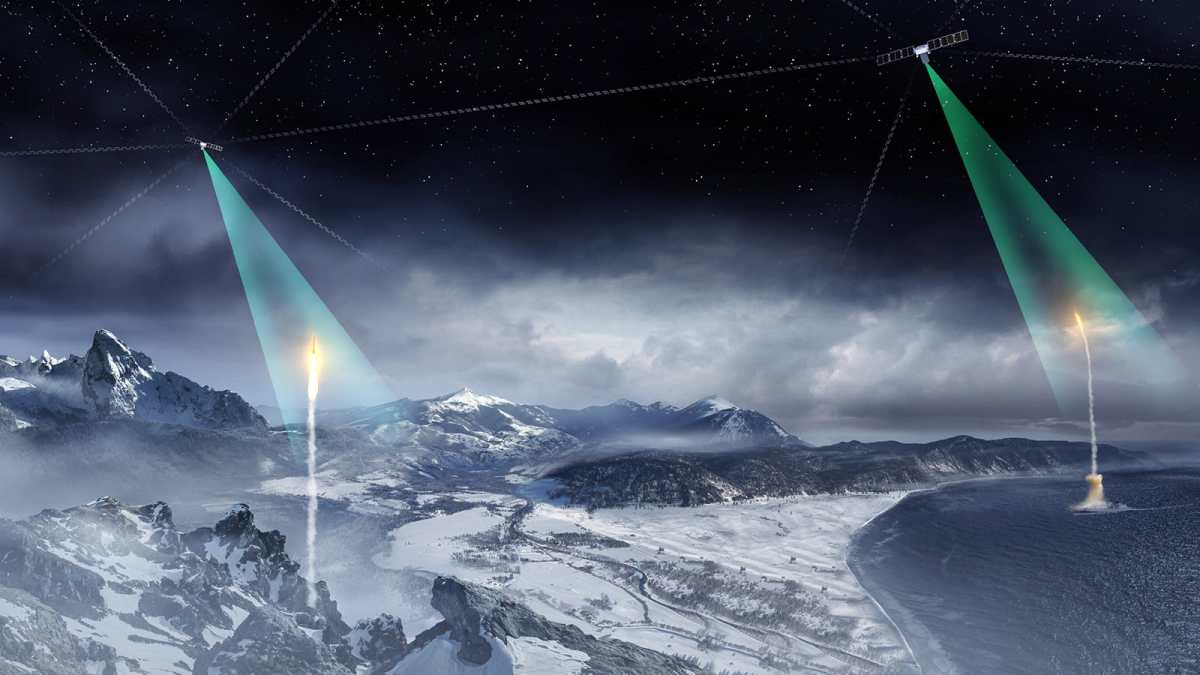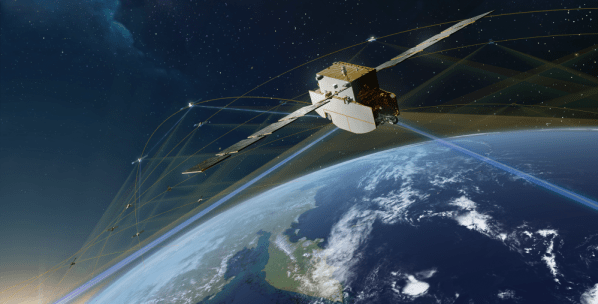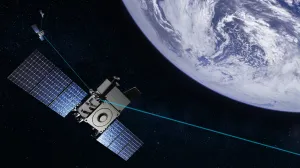Space Force drops Raytheon from MEO missile-warning satellite effort

The Space Force’s acquisition branch has discontinued its contract with Raytheon (RTX) to build three missile warning and tracking satellites for Epoch 1 of the service’s Resilient Missile Warning and Missile Tracking – MEO (MEO MW/MT) program, DefenseScoop has learned.
Space Systems Command notified Raytheon of the discontinuation in May and held a design closure event earlier this month, an SSC spokesperson said in an email. The service decided to drop the company from the program “because the RTX Epoch 1 development effort was facing significant cost growth from the original agreement baseline, projecting slips to the launch schedule, and had unresolved design challenges,” they added.
Raytheon received an other transaction agreement in 2021 to design digital models of three space vehicles for Epoch 1 of the MEO MW/MT program. The planned constellation is intended to track high-speed missiles from medium-Earth orbit (MEO), and is part of the Space Force’s plan to build a resilient architecture of missile-warning satellites in multiple orbits.
Similar to the Space Development Agency’s Proliferated Warfighter Space Architecture (PWSA), the MEO MW/MT satellites are being developed in phases — referred to as “epochs” — that are designed to deliver the latest capabilities in increments. Raytheon is also contracted with SDA to build satellites for Tranche 1 of the PWSA’s missile tracking layer, which will be launched into low-Earth orbit.
“RTX remains committed to supporting the U.S. Space Force now and in the future,” a company spokesperson said in a statement when asked to comment on RTX’s discontinuation from the Epoch 1 effort.
Boeing-subsidiary Millennium Space Systems received a contract at the same time as Raytheon in 2021, to design six satellites for the constellation. In June 2023, L3Harris became the third vendor for Epoch 1 when the Space Force awarded it a one-year contract for sensor payload design.
The service announced in November that the six satellites from Millennium passed space system critical design review, and the SSC spokesperson noted the company also achieved CDR for its ground segments in March. In addition, L3Harris completed critical design review for its infrared sensor payload designed for Epoch 1 in May, according to the company.
The SSC spokesperson noted that the decision to remove Raytheon from the program has not impacted the other vendors nor the program’s schedule to launch the satellites sometime in 2026 or 2027.
To replace the three scrapped space vehicles, the Space Force now plans to either build additional space vehicles from another vendor contracted for Epoch 1 or through its upcoming competition for Epoch 2, the next iteration of the MEO MW/MT constellation.
A request for proposal for Epoch 2 of MEO MW/MT is expected to be released in July, according to the spokesperson.
“We are still on path to deliver to our Epoch 1 goals to provide an initial missile tracking capability, prototype several key technologies, and refine operational concepts in MEO,” they said. “The MEO program has done an outstanding job of creating a sustained competitive environment, allowing us to execute this action without compromising our ability to meet the requirement to provide a resilient missile warning and tracking capability for the nation.”
News of the service dropping a vendor emerged in the detailed funding tables of House appropriators’ fiscal 2025 defense spending bill, first published by Politico on Monday. Lawmakers proposed a $75 million decrease in funds allocated due to “MEO vendor termination,” as well as an additional $10 million drop for “Epoch 2 ops and integration early to need” and another $10 million cut for “management services excess to need,” the documents show.
In total, House appropriators allocated $750 million in research and development dollars for the MEO MW/MT program. The Space Force had originally asked for $846 million in its budget request for fiscal 2025.
Along with the MEO MW/MT program cuts, House appropriators’ proposal would pare down the Space Force’s fiscal 2025 budget to $28.7 billion — around $900 million less than what the service requested in March, and about 5 percent less than what the Space Force was allocated in fiscal 2024.
The House defense appropriations bill must be reconciled with the Senate version during conference before becoming law, so it remains to be seen how much funding will ultimately be approved by Congress.






